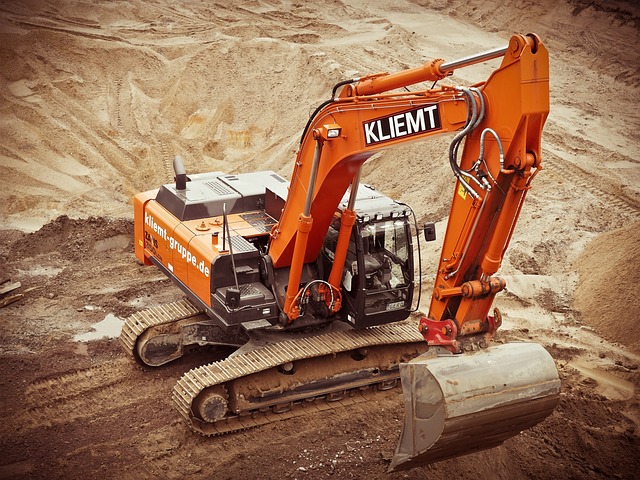DMV fees for commercial vehicles are structured to reflect the wear and tear heavier vehicles cause on roads, with costs based on weight, size, use frequency, and cargo type. Recent state changes in areas like Colorado exemplify a national trend towards fair road maintenance expense allocation by vehicle type. Businesses must stay informed about these changes, as they can significantly impact fleet management and operational costs, especially regarding older or heavier vehicles. Understanding these fee structures is crucial for profitability and compliance, enabling companies to strategically plan maintenance, replacements, and overall fleet types for more efficient operations and cost savings. Staying up-to-date with local DMV requirements, understanding specific fee structures, regularly reviewing fleet classification, keeping documents updated, renewing early, and leveraging industry associations are key preparation steps.
Commercial vehicle owners face unique challenges when it comes to DMV registration, marked by elevated fees and stringent requirements. These costs are directly linked to the wear and tear these vehicles cause on public roads, reflecting a fair-use principle. Recent reforms in states like Colorado have shaken up annual registration processes for heavier vehicles, demanding business owners stay informed about changing regulations. This article breaks down these shifts, from understanding fee structures to preparing for upcoming registration deadlines, empowering fleet managers to navigate the evolving landscape seamlessly.
- Understanding DMV Fees for Commercial Vehicles
- How Wear and Tear Affects Registration Costs
- Recent Changes in Colorado's Vehicle Registration Rules
- Implications for Everyday Business Operations
- Preparing for Commercial Vehicle Registration & Renewal
Understanding DMV Fees for Commercial Vehicles

DMV fees for commercial vehicles are designed to account for the additional wear and tear heavier vehicles impose on public roads. These fees often include base registration costs, weight-based surcharges, and various other charges depending on the type and use of the vehicle. Understanding these fee structures is crucial for businesses to budget effectively and avoid unexpected financial burdens.
States like Colorado have recently implemented changes to their annual fees, reflecting a broader trend across the nation. These adjustments aim to accurately assess the costs associated with different types of commercial vehicles, ensuring fair allocation of road maintenance expenses. Businesses must stay informed about such changes, as they can significantly impact overall fleet management and operational costs.
How Wear and Tear Affects Registration Costs

The DMV registration fees for commercial vehicles are designed to account for the additional wear and tear these larger, heavier machines place on public roads. The cost reflects not just the vehicle’s weight but also its size, frequency of use, and the type of cargo it transports. For instance, a large semi-truck that hauls heavy loads daily will inevitably incur higher registration costs than a smaller van used for occasional local deliveries. This system aims to ensure that businesses using these vehicles contribute fairly to road maintenance and infrastructure.
The impact of wear and tear is particularly relevant when considering the regular renewal process. As vehicles age, their parts may need more frequent replacement, leading to increased operational costs for businesses. Consequently, higher registration fees for older or heavier vehicles can significantly affect a company’s bottom line, especially in industries where fleet management is a core expense. Understanding these fee structures and how they align with vehicle conditions is crucial for businesses aiming to stay profitable and compliant with local regulations.
Recent Changes in Colorado's Vehicle Registration Rules

Implications for Everyday Business Operations

For everyday businesses relying on commercial vehicles, the changing DMV registration landscape presents both challenges and opportunities. On one hand, higher fees and stringent requirements can significantly impact operational costs, especially for smaller enterprises with limited budgets. These additional expenses may require careful financial planning and potentially lead to increased pressure on profit margins.
However, the updated vehicle classification system also offers a chance for businesses to optimize their fleet management strategies. By understanding the new fee structure and its tie to vehicle weight and wear and tear, companies can make informed decisions about vehicle maintenance, replacement schedules, and even the types of vehicles they operate. This proactive approach could lead to more efficient operations, reduced long-term costs, and improved sustainability in business practices.
Preparing for Commercial Vehicle Registration & Renewal

Preparing for commercial vehicle registration and renewal can be a complex process, especially with varying state regulations. Business owners must stay informed about their local Department of Motor Vehicles (DMV) requirements to avoid delays or penalties. This often involves understanding specific fee structures based on vehicle weight and type. For instance, heavier vehicles in states like Colorado now face higher annual fees reflecting the increased wear and tear they cause on public roads.
To be ready, businesses should regularly review their fleet’s vehicle classification and ensure all necessary documents are up to date. This preparation includes gathering important papers such as insurance policies, maintenance records, and any required inspections certificates. Early renewal can also help avoid last-minute stress and potential fines. Additionally, staying connected with industry associations or local business networks can provide valuable insights and resources regarding DMV regulations and fee changes.
In conclusion, navigating commercial vehicle registration can be complex due to varying state regulations and fee structures. Understanding these nuances, as highlighted in this article, is essential for businesses operating a fleet of vehicles. By staying informed about changes like Colorado’s recent updates, businesses can anticipate potential impacts on their operations and ensure timely compliance with DMV requirements, ultimately avoiding penalties and streamlining their vehicle registration processes.



